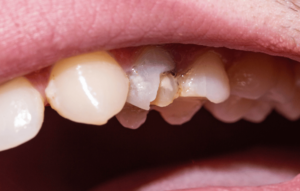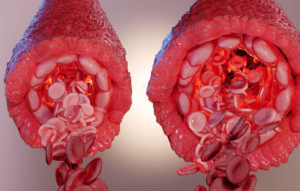Breathing is typically an involuntary action that we rarely stop to consider, but the way we breathe can have serious impacts on our overall health. While many people breathe through their mouths without a second thought, this habit can lead to a host of health issues, from poor oral hygiene to sleep disorders and beyond. In contrast, nasal breathing, a seemingly simple switch, can drastically improve your well-being and quality of life.
In this blog, we will look at the differences between mouth breathing and nasal breathing, uncovering the benefits of primarily using your nose instead. You’ll learn why nasal breathing is superior, how it can enhance your health, and practical tips to make this healthy habit a part of your daily routine. By understanding and implementing the practice of nasal breathing, you can make a significant step toward improving your overall health and vitality.
Let’s explore how this simple switch can surprisingly change your life.
Understanding Mouth Breathing
Mouth breathing is when you inhale and exhale mostly through your mouth rather than your nose. While it might seem harmless, mouth breathing can lead to some legitimate health issues if not addressed.
Common Causes
Mouth breathing can result from a few different factors, including:
- Allergies: Chronic allergies can cause nasal congestion, forcing individuals to breathe through their mouths.
- Nasal Congestion: Conditions such as a deviated septum, sinusitis, or the common cold can block nasal passages.
- Sleep Apnea: This sleep disorder often leads to mouth breathing as individuals struggle to get enough air during the night.
Signs and Symptoms
Recognizing the signs of mouth breathing is crucial to addressing the issue. Common symptoms include:
- Dry Mouth: Breathing through the mouth can cause dryness, leading to discomfort and an increased risk of oral health issues.
- Chronically Bad Breath: Reduced saliva flow in the mouth can result in bacterial growth, causing bad breath.

- Snoring: Mouth breathing often leads to snoring, which can disrupt sleep quality for both you and your partner.
Understanding these aspects of mouth breathing is the first step in recognizing the importance of making the switch to nasal breathing for better health.
The Health Implications of Mouth Breathing
Mouth breathing is not just an inconvenient habit; it can actually lead to some significant health problems if left unaddressed. From oral health issues to sleep disorders and respiratory problems, the implications can be heavy.
Oral Health Issues
Breathing through the mouth can cause several oral health problems, such as:
- Tooth Decay: Dry mouth reduces saliva production, which is essential for neutralizing acids and preventing tooth decay.
- Gum Disease: Reduced saliva flow can also lead to gum inflammation and periodontal disease, increasing the risk of tooth loss.

Sleep Disorders
Mouth breathing can significantly impact sleep quality and lead to disorders such as:
- Sleep Apnea: This condition, characterized by pauses in breathing during sleep, is often exacerbated by mouth breathing, leading to fragmented and poor-quality sleep.
- Poor Sleep Quality: Mouth breathing can cause frequent awakenings and discomfort, resulting in inadequate rest and fatigue throughout your day.
Respiratory Problems
Mouth breathing can compromise respiratory health by:
- Increased Susceptibility to Colds and Infections: The nose acts as a filter for dust, allergens, and pathogens. Breathing through the mouth bypasses this natural defense, making you more vulnerable to illnesses.
- Asthma Exacerbation: Mouth breathing can dry out the airways and make asthma symptoms worse, leading to increased difficulty in breathing and managing the condition.
The Benefits of Nasal Breathing
Nasal breathing offers numerous health benefits that can enhance your overall well-being. By using your nose to breathe, you can improve your body’s ability to filter, humidify, and regulate the air you breathe, leading to a wide range of positive outcomes.

Filtration of Air
One of the key advantages of nasal breathing is its ability to filter the air before it reaches your lungs:
- Removal of Dust and Allergens: The tiny hairs (cilia) and mucous membranes in your nose trap dust, pollen, and other allergens, preventing them from entering your respiratory system.
- Humidification and Temperature Regulation: The nasal passages humidify and warm the air, making it easier for your lungs to absorb oxygen efficiently and safely.
Enhanced Oxygen Intake
Nasal breathing can significantly improve your body’s oxygen levels, leading to better overall health and performance:
- Improved Blood Oxygen Levels: Breathing through your nose allows for a more efficient exchange of oxygen and carbon dioxide, enhancing your blood’s oxygen content.
- Better Athletic Performance: Higher oxygen levels can improve endurance, strength, and recovery, making nasal breathing beneficial for athletes and active individuals
Support for Proper Oral and Dental Health
Maintaining nasal breathing can help prevent the common oral health issues we mentioned above such as:
- Reduced Risk of Dental Problems: By keeping your mouth closed and moist, you reduce the risk of tooth decay and gum disease associated with dry mouth.
- Prevention of Bad Breath: Nasal breathing encourages saliva production, which helps keep your mouth clean and fresh.
These benefits illustrate why making the switch to nasal breathing can have a profound impact on your health and quality of life.
Nasal Breathing and Hormonal Health
Nasal breathing not only impacts your respiratory and oral health but also plays a crucial role in regulating your body’s hormonal balance. By promoting the production of essential molecules and reducing stress, nasal breathing can significantly enhance your hormonal health.
Regulation of Nitric Oxide Production
Nasal breathing aids in the production of nitric oxide, a vital molecule for various bodily functions:
- Blood Vessel Dilation and Circulation: Nitric oxide helps dilate blood vessels, improving circulation and blood flow throughout the body. This can lower blood pressure and enhance cardiovascular health.

- Impact on Cardiovascular Health: Improved circulation from nitric oxide production can reduce the risk of heart disease and other cardiovascular issues.
Stress Reduction
Nasal breathing stimulates the parasympathetic nervous system, promoting relaxation and reducing stress:
- Parasympathetic Nervous System: This system, often referred to as the “rest and digest” system, helps your body relax and recover from stress.
- Reduction in Cortisol Levels: By lowering stress levels, nasal breathing can reduce the production of cortisol, a hormone associated with chronic stress and its negative health effects.
Practical Tips for Encouraging Nasal Breathing
Transitioning from mouth breathing to nasal breathing can be challenging, especially if you have long-standing habits or underlying health issues. However, with some practical strategies and lifestyle adjustments, you can make nasal breathing a natural part of your routine.
Addressing Underlying Issues
The first step in promoting nasal breathing is to address any underlying conditions that may be causing mouth breathing:
- Treating Allergies and Nasal Congestion: Use antihistamines, decongestants, or saline nasal sprays to manage allergies and clear nasal passages.
- Seeking Medical Advice for Sleep Apnea: Consult a healthcare professional for diagnosis and treatment options if you suspect you have sleep apnea. Continuous positive airway pressure (CPAP) therapy or other treatments may be recommended.
Breathing Exercises and Techniques
Incorporating specific exercises and techniques can help you train yourself to breathe through your nose:
- Buteyko Method: This method involves exercises that help reduce over-breathing and promote nasal breathing. It focuses on controlled, gentle breathing to improve overall respiratory function.
- Alternate Nostril Breathing: A yoga technique that involves breathing through one nostril at a time, helping to clear nasal passages and promote relaxation.

Lifestyle Changes
Making certain lifestyle adjustments can also support your efforts to breathe through your nose:
- Maintaining Proper Posture: Good posture can enhance your ability to breathe efficiently through your nose. Ensure your head and neck are aligned correctly, whether sitting or standing.
- Staying Hydrated: Drink plenty of water to keep your nasal passages and throat moist, making it easier to breathe through your nose.
- Using Nasal Strips or Dilators if Necessary: Nasal strips and dilators can help keep your nasal passages open, especially at night, making it easier to breathe through your nose.
By implementing these tips and strategies, you can make nasal breathing a natural part of your life and enjoy all the health benefits that come along with it.
Conclusion
Transitioning from mouth breathing to nasal breathing can have a seriously transformative impact on your health and general well-being. In this blog, we’ve explored the significant differences between these two breathing methods and highlighted the benefits nasal breathing offers us. From improving oral and respiratory health to enhancing hormonal balance and reducing stress, the advantages are profound and this simple switch is accessible to almost everyone.
By understanding the common causes and health implications of mouth breathing, you can start to take some proactive steps to address any underlying issues you might have and work on healthier breathing habits. The tips we listed, like treating allergies, practicing breathing exercises, and making lifestyle adjustments can help you make the switch to nasal breathing more seamlessly.
Embracing nasal breathing is a simple yet powerful change that can improve your overall health and quality of life. By filtering and humidifying the air you breathe, enhancing oxygen intake, and promoting relaxation, nasal breathing supports your body in functioning at its best.
Take the first step towards better health today by incorporating the tips and techniques we’ve discussed. It sounds simple, but this simple switch can truly change your life for the better. Breathe through your nose, and experience the profound difference it can make.











